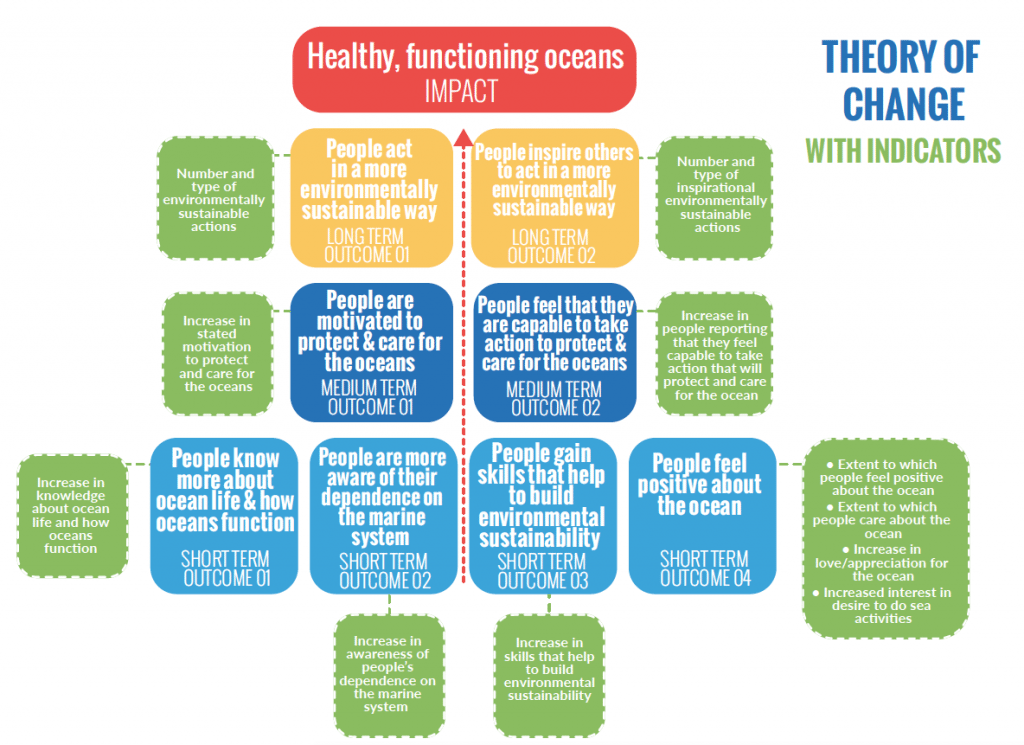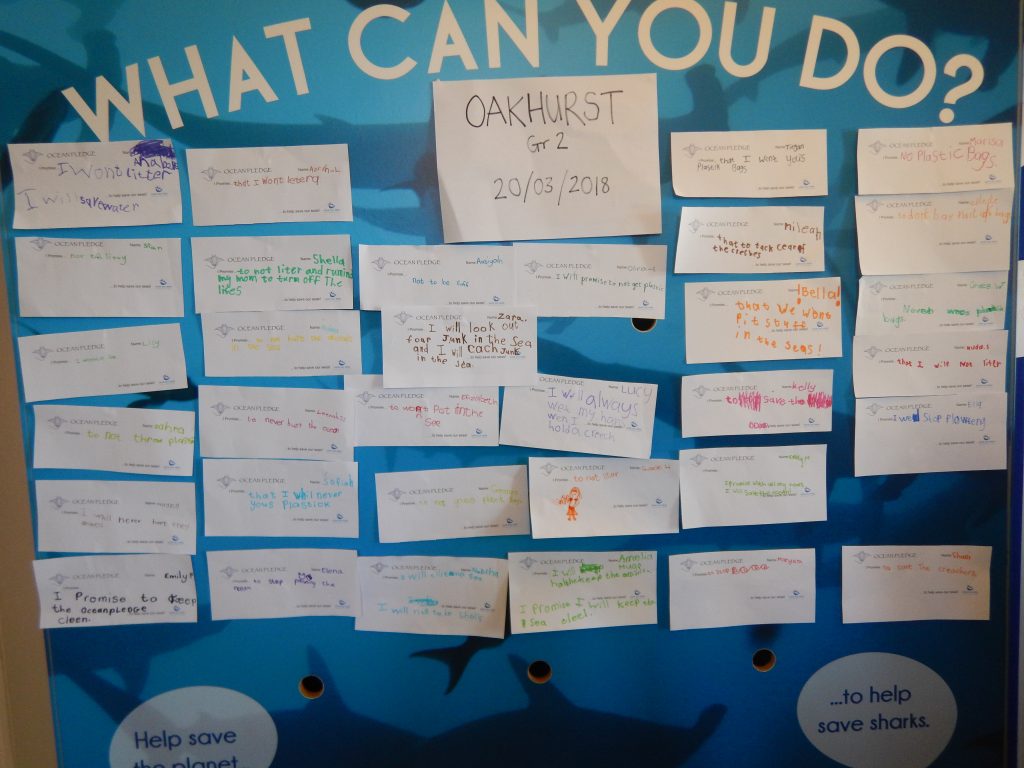Measuring our impact at the Shark Education Centre
One of the real challenges for NGO’s and education centres is how exactly we assess the impact that we are having with our programmes. This goes beyond just a case of keeping a detailed listing of schools, numbers of educators and kids, visitor numbers, etc. and it also needs to be an ongoing process of monitoring, evaluating and learning.
In order to do this, we have been working with a specialist company to develop an evaluation system to assess the impact of the SOSF Shark Education Centre. This is a very important process and needs to be specifically targeted to our audience and facilities, and can take a lot of time and effort to set up properly. The first step was to go through a rapid evaluation and thereafter to develop the Centre’s Theory of Change. This theory is then used as a framework around which to construct exactly what we need to measure, and how we go about it!

The SOSF Shark Education Centre's Theory of Change with Indicators © Eleanor Yeld Hutchings | Save Our Seas Foundation
We have recently begun trialling some of our data collection tools for measuring our impact. It adds a fair bit of time and effort in preparation to our programmes, but should hopefully be worth it!
The first data collection tool consists of a “pre and post” question session, where the learners are asked a set of 8 questions at the beginning of their day with us (basic questions to which they answer “yes”, “no” or “don’t know”), and are asked the same set of questions at the end of the day. The answers are anonymous and the learners can’t see what their classmates answer. The 2 sets of answers are then scored and compared, so that we can assess whether we are teaching them any of the knowledge associated with our identified key messages.
We have also been implementing the “Ocean Pledge”, where at the end of the day we ask each learner to write an ocean pledge of their own. This is a personal promise on their part, either to do something or to stop doing something, in order to help save our seas. This is aimed more at assessing whether we are effecting any attitude changes, or giving them the tools with which they feel that they can take action. Each learner writes their own pledge, and then we take a photo of the whole class’s pledges. They take their pledge home with them as a reminder. We will follow up with their teacher later in the year so that they can ask who has been keeping their promises – as an active reminder to the learners that they themselves do have the power to take environmentally responsible actions that have positive consequences.

Ocean Pledges - a personal promise of action to help save the ocean © Eleanor Yeld Hutchings | Save Our Seas Foundation
In addition, we are working with a researcher doing her M.Phil, on “Conservation benefits of Interpretation at a wildlife tourism site: Using sharks as ambassador animals to encourage pro-conservation behaviour”. In conjunction with her, we are doing teacher surveys with all teachers who bring their groups to the Shark Education Centre. This research will aim to measure the impact that interpretation (educational signage, exhibits, interactive experiences and presentations) in a free-choice learning centre has on the visiting public. And will thus be a valuable resource for us to use as well!
